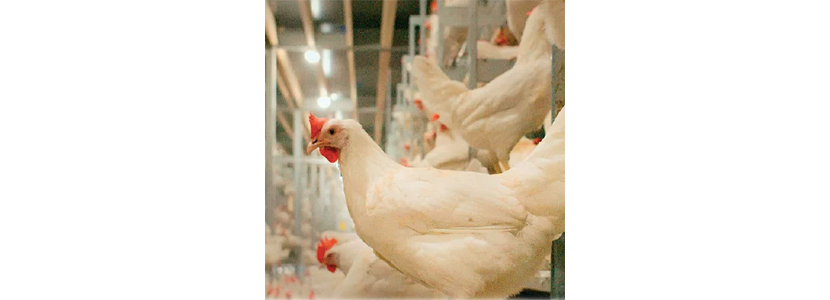Content available at: Español (Spanish) العربية (Arabic)
Lighting conditions are an essential element of the general environment in layer houses. Laying hens see differently than humans. This means that the lighting conditions must be adjusted accordingly.
Optimal lighting conditions increase the vision of the layers and improve their behavior, welfare and performance. Now, how is this in practice? Let’s dive into the 4 key benefits of optimal layer lighting.
1. Increased egg production and shell strength
The higher the quantity and quality of the eggs, the better the company’s results.
Optimal lighting ensures that the birds mature in correspondence and stimulates them to begin laying eggs. With the right light spectrum, it is also possible to optimize the resistance of the shell. Likewise, lighting can, on the one hand, stimulate the intake of water and food and, on the other hand, reduce stress and energy consumption. Consequently, the feed conversion rate is reduced and thus improved.
As you can imagine, all this contributes to obtaining a greater number of eggs and making them more resistant.
Discover our products: https://hato.lighting/es/los-productos/
2. Less stress
As with humans, stress is not good for the welfare, health, or performance of laying hens. The lower the stress, the better the returns.
The main role of optimal lighting is to improve the vision of the layers. When they see better, they are more at ease. This automatically leads to lower levels of stress. In addition to optimizing vision, it is important that the lighting does not show any flicker. Chickens may perceive flickering (a rapid fluctuation in the light intensity of the lamp) as a threat. The logical result is stress.
And precisely some of the benefits of a lower level of stress are improved feed conversion rate, increased egg production, and fewer unwanted behaviors.
3. Aviaries: fewer eggs on the ground
Laying down is a well-known problem in aviaries. The lower the laying on the ground, the greater the number of usable eggs and the shorter the time necessary for their collection by hand. For sure, this makes things easier.
The most effective way that lighting can reduce grounding is through optimal light distribution. This means that the right amount of light is
Keep up to date with our newsletters
Receive the magazine for free in digital version
REGISTRATION
ACCESS
YOUR ACCOUNT
LOGIN
Lost your password?

